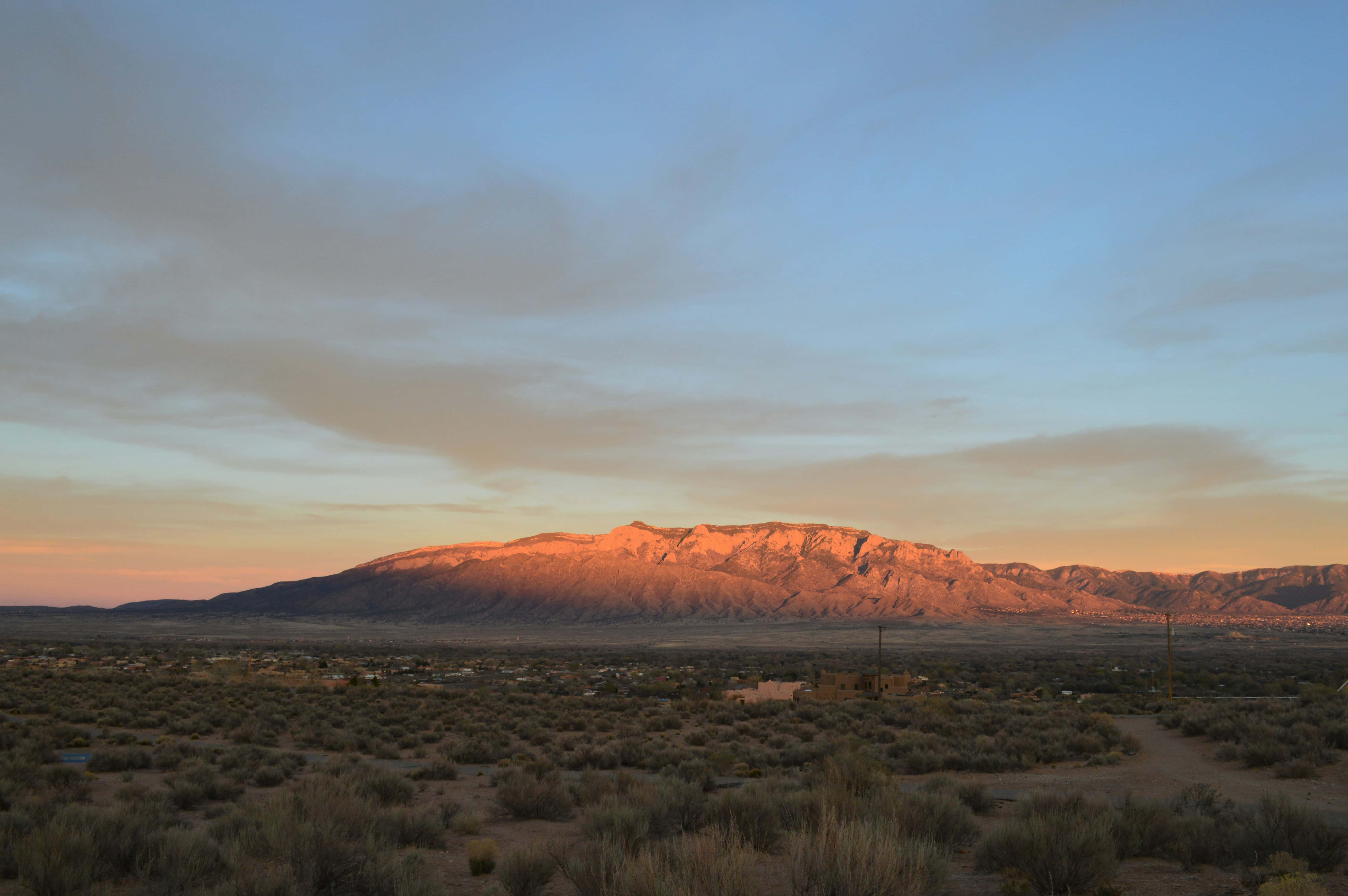I met Ben Thomas early in the morning at Los Cerritos, the kind of Mexican restaurant where the coffee is strong, the tortillas are warm, and everyone seems to know each other. Over an enormous plate of eggs and Southwestern-style chili, we talked about family, work, and life in Roswell.
Ben has spent all of his life here. He runs The Cabinet Shoppe, a local business delivering quality, custom work. But lately, his attention has turned to something much bigger: a 15-acre community solar farm rising on his land just north of town, one of the first such projects in the region.
After breakfast, we drove to the site. It’s row after row of steel racking and solar panels stretched across the desert floor. Trucks from J&G Electric, a Roswell-based contractor, kicked up dust as crews adjusted the racking equipment under the mid-morning sun. Every worker was local. Ben knows everyone by name. “Good crew,” he said, and meant it.
-min.jpg)
He’s not just the landowner. He’s the project owner and general contractor, out there every morning before the wind picks up, managing crews, troubleshooting, and keeping things on schedule. He partnered with Cenergy Power for technical support and PowerMarket, which handles outreach and enrollment, with each playing a different part in making the project real.
Later that day, we visited his ranch. Goats wandered along the fence line. Longhorn cattle grazed under the big sky. A huge draft horse standing beside a miniature one. In the front yard, rows of young pecan trees stretched out, still years from bearing fruit. “They’ll be ready in twenty years,” he said, half-joking. “You plant things that’ll outlive you.”
-min.jpeg)
That’s how he sees the solar project too. It’s another kind of crop. It’s coming from the sunlight instead of soil, energy instead of fruit. When completed, it will deliver clean electricity into the Xcel Energy grid, reducing costs for hundreds of families and small businesses throughout southeastern New Mexico.
Half of the project’s capacity is reserved for income-qualified households, which is more than the state requires. “If we’re going to do it,” Ben said, “we’re going to do it right.” It’s not about instant gratification. This is a long-term investment for the future.
When we stood before the Roswell City Council that evening, Ben went first, speaking as a lifelong resident, business owner, and now, the landowner behind Roswell’s first community solar project. He talked about what it meant to him personally: a way to put his property to good use and help local families save on their energy bills.
Then it was my turn. I explained how community solar works and how residents subscribe, receive credits on their Xcel Energy bills, and save up to 30% each month without needing rooftop panels. We discussed simple steps the city could take to help residents understand and access the program. It’s a simple idea, but new to most people, and we were happy to answer the Council’s questions.
One council member asked bluntly, “Where do you guys make the money?” I explained that the value of the energy generated by the solar farm offsets what Xcel Energy would otherwise have to purchase elsewhere. The revenue allows the project to pay vendors and subcontractors, cover costs, and still pass savings along to residents. Then, the mayor asked what happens if the solar project goes down. All fair questions.
I explained that the project owner is on the hook if the project stops producing energy. It’s in their interest to make sure the system is functioning and properly maintained. I explained that projects like this are highly regulated by the state and that reliability improves when these types of projects are added to the grid. On a hot summer afternoon, when everyone is blasting their air conditioning, these panels are producing their maximum output right here in Roswell. That local generation helps stabilize the grid and reduce strain on transmission lines.
Skepticism is real and understandable. People here value what’s proven, what works. And our job is to show that this project is serving the public interest, part of a state-regulated program, locally built, and financially transparent. The benefits are real, and where it’s coming from is visible right up the road on Ben’s land.
-min.JPG)
At the end, the mayor publicly thanked Ben for his personal integrity, for hiring local, and for doing things the right way.
Driving through Roswell later that night, the neon signs and quiet streets fading behind me, I kept thinking about how in a place defined by hard work and self-reliance, community solar fits right in. It’s another way of turning sunlight and soil into something that will continue to produce for decades to come.

-min.jpg)
-min.jpeg)
-min.JPG)